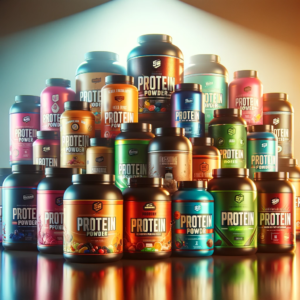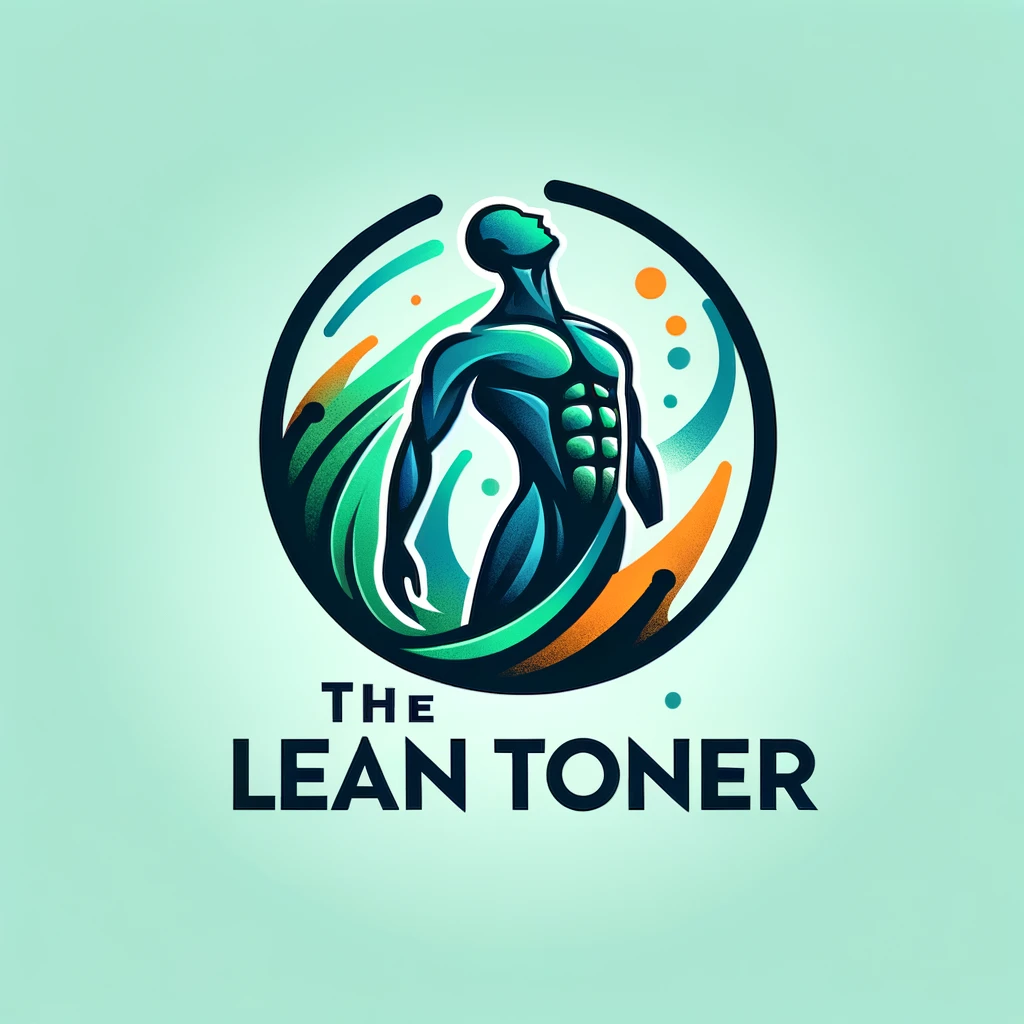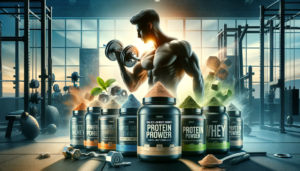The Ultimate Guide on How to Choose Protein Supplements for Muscle Building

Protein is the cornerstone of muscle building—a fact known by novice gym-goers and professional athletes alike. The market is inundated with protein supplements, each claiming to be the key to unlocking unprecedented gains. But with such a plethora of options, how do you sift through the noise and choose the protein supplement that will best support your muscle-building journey? This comprehensive guide will delve into the intricacies of protein supplements, demystify the science behind muscle synthesis, and arm you with the knowledge to make an informed decision tailored to your unique fitness goals.
Understanding Protein Supplements

What are Protein Supplements?
Protein supplements are concentrated sources of protein derived from various food products, designed to augment your daily protein intake. They’re particularly popular among those looking to increase muscle mass, improve athletic performance, or aid in recovery post-exercise.
Different Types of Protein Supplements
Let’s explore the most common protein supplements available on the market:
- Whey Protein: Derived from milk during the cheese-making process, it’s rich in branched-chain amino acids (BCAAs) and is quickly absorbed by the body, making it ideal for post-workout recovery.
- Casein Protein: Also sourced from milk, casein is digested slowly, providing a steady release of amino acids, which makes it perfect as a pre-bedtime snack to aid muscle repair overnight.
- Soy Protein: A plant-based option that contains all nine essential amino acids, making it a complete protein suitable for vegetarians and those with lactose intolerance.
- Pea Protein: Another vegan-friendly choice, pea protein is hypoallergenic and rich in iron, but it may need to be combined with other plant proteins to ensure a full amino acid profile.
- Hemp Protein: Extracted from the seeds of the cannabis plant, it not only offers a complete protein but also a healthy dose of omega-3 and omega-6 fatty acids.
- Rice Protein: Typically made from brown rice, this hypoallergenic option is often combined with pea protein to make a complete protein source for those following a plant-based diet.
Pros and Cons of Each Type of Protein Supplement
Each protein type offers unique benefits and potential drawbacks:
- Whey Protein:
- Pros: Fast absorption, high BCAA content, supports muscle growth.
- Cons: Potential allergen for those with lactose intolerance.
- Casein Protein:
- Pros: Slow digestion, ideal for sustained protein release.
- Cons: May be less effective as a post-workout supplement due to slower absorption.
- Soy Protein:
- Pros: Complete protein, plant-based, supports heart health.
- Cons: Some concerns over phytoestrogens affecting hormone levels.
- Pea Protein:
- Pros: High in iron, allergen-friendly, good digestibility.
- Cons: May be less palatable than other options.
- Hemp Protein:
- Pros: Contains essential fatty acids, complete protein profile.
- Cons: Lower protein content per serving compared to others.
- Rice Protein:
- Pros: Easy to digest, hypoallergenic.
- Cons: Usually needs to be combined with other proteins.
When considering which protein to choose for muscle gain, it’s essential to look not only at the type but also at the quality and how it fits into your lifestyle and dietary needs.
Factors to Consider When Choosing Protein Supplements
When selecting the optimal protein supplement for muscle gain, it’s not just about picking the product with the flashiest label or the most promising claims. Here are several key factors to keep in mind:
Personal Goals and Fitness Level
Before diving into the sea of protein powders, it’s crucial to have a clear understanding of your fitness goals. Are you looking to bulk up, lean out, or simply maintain your current muscle mass? Your fitness level also plays a significant role—beginners may have different protein requirements than seasoned athletes.
Dietary Restrictions and Allergies
Your choice of protein supplement should align with any dietary restrictions or allergies you may have. For instance, if you’re lactose intolerant, plant-based proteins like soy, pea, or hemp might be more suitable than whey or casein.
Taste and Texture Preferences
The best protein supplement is one that you can consistently incorporate into your diet. If you don’t enjoy the taste or texture, you’re less likely to stick with it. Sample different flavors and brands to find one that pleases your palate.
Budget Considerations
Protein supplements can vary widely in price. Set a budget that reflects how much you’re willing to invest in your muscle-building journey without breaking the bank. Remember, the most expensive option isn’t always the most effective.
Determining Protein Needs for Muscle Building
Gaining muscle isn’t just about consuming as much protein as possible. It’s about consuming the right amount at the right times. Let’s look at how to calculate your protein needs:
Importance of Protein in Muscle Growth
Protein is the building block of muscle tissue. When you exercise, you create micro-tears in your muscle fibers, which then repair and grow back stronger with the help of protein.
Recommended Daily Protein Intake for Muscle Building
The general recommendation for muscle gain is to consume approximately 1.6 to 2.2 grams of protein per kilogram of body weight. However, individual needs can vary.
Factors to Consider When Calculating Protein Needs
- Body Weight and Composition: Heavier individuals or those with more muscle mass may require more protein.
- Activity Level and Exercise Routine: The more you exercise, especially strength training, the higher your protein requirements may be.
- Timing of Protein Consumption: Consuming protein soon after a workout can maximize muscle repair and growth.
Evaluating Protein Supplement Quality
The quality of your protein supplement is vital to its effectiveness. Here’s how to assess it:
Understanding Protein Content and Purity
Look for protein supplements that provide a high percentage of protein per serving with minimal fillers or unnecessary additives.
Checking for Third-Party Testing and Certifications
Reputable brands often undergo third-party testing for product purity and safety. Certifications like NSF or Informed-Choice can provide peace of mind.
Reading Product Labels and Ingredient Lists
Pay close attention to the ingredient list to avoid unwanted additives and to ensure you’re getting a high-quality protein source.
Researching Brand Reputation and Customer Reviews
Explore reviews and testimonials from other users, and research the brand’s reputation within the fitness community.
Choosing the Right Protein Supplement
Now that you’ve got a handle on the types of protein and how much you need, let’s get into the nitty-gritty of selecting the right product.
Identifying the Best Protein Source for Muscle Building
Not all proteins are created equal, especially when it comes to building muscle. Whey protein, with its high BCAA content and fast absorption, is often heralded as the go-to for post-workout recovery and muscle building. However, your individual dietary needs and goals might lead you to another type, such as casein for slower absorption or a plant-based protein if you’re vegan.
Considering Additional Ingredients and Additives
Many protein powders come with added ingredients that can either be beneficial, like added BCAAs, or unwanted, like excessive sugars and artificial additives. Make sure to read the label carefully to ensure that your supplement supports your health and fitness goals.
Comparing Different Brands and Product Options
Once you’ve narrowed down the type of protein you’re interested in, compare different brands and products. Look for things like cost per serving, protein content, and customer reviews. Also, consider the mixability and flavor options that suit your taste preferences.
Seeking Expert Recommendations and Professional Advice
If you’re still unsure about what to choose, don’t hesitate to seek advice from a nutritionist, dietitian, or a fitness professional. They can provide personalized recommendations based on your specific needs and goals.
Tips for Maximizing the Benefits of Protein Supplements

To get the best results from your protein powder, it’s not just about what you take, but also how you take it. Here are some tips to ensure you’re maximizing the muscle-building potential of your protein supplements.
Proper Timing and Frequency of Protein Consumption
The timing of your protein intake can play a critical role in muscle synthesis. Consuming protein shortly after a workout can help kickstart the repair and rebuilding process. Additionally, spreading your protein intake throughout the day can ensure a constant supply of the amino acids necessary for muscle growth.
Pairing Protein Supplements with Other Nutrients for Optimal Results
Protein works best when consumed as part of a balanced diet. Combining your protein supplement with a source of carbohydrates can enhance protein synthesis and recovery, especially post-workout. Including healthy fats in your diet can also support overall health and hormone balance, which is crucial for muscle growth.
Staying Consistent with Protein Intake and Tracking Progress
Consistency is key when it comes to building muscle. Keep a food diary or use an app to track your protein intake and ensure you’re meeting your daily goals. Monitoring your progress, both in terms of dietary habits and physical changes, can help you make necessary adjustments over time.
Listening to Your Body and Making Adjustments as Needed
Every body is unique and may respond differently to protein supplementation. Pay attention to how your body reacts, and if you experience any digestive issues or other side effects, consider trying a different type or brand of protein.
Conclusion
Choosing the right protein supplement for muscle building is a personal journey that requires consideration of your goals, dietary restrictions, and taste preferences. By understanding your protein needs, assessing the quality of supplements, and applying best practices for consumption, you can effectively support your muscle-building efforts.
Armed with this comprehensive guide, you’re now ready to navigate the world of protein powders with confidence. Remember that while supplements can be a convenient way to increase your protein intake, they should complement a well-rounded diet and consistent training program. Here’s to your strength and growth!




